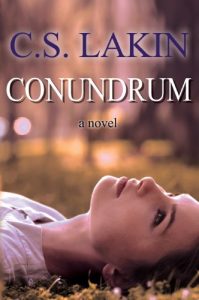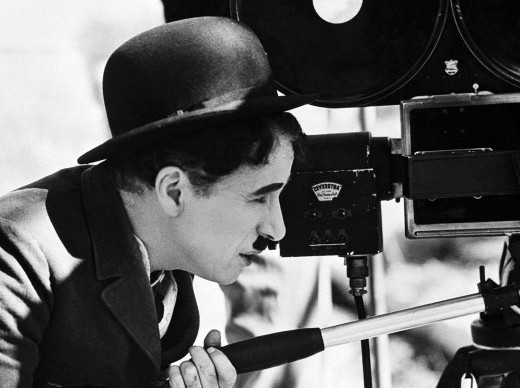Why Story Endings Are Often Predictable – And That’s Okay
Here’s a reprint of a post I wrote a decade ago. Do you struggle with ending your story? Trying to come up with something startling or unexpected? You might want to think again.
As contradictory as this might sound, endings in novels need to seem inevitable without being predictable. When your reader finishes the book , she should feel that this was the only way it could have ended. Everything has led up to this finale, and it just plays out perfectly.
This isn’t predictability. You don’t want readers thinking they knew exactly what was going to happen and are bored as they hurriedly flip through the last pages of the book.
Recently I read a couple of award-winning sci-fi novels that were really pretty good until about the last fifty pages. I found myself starting to skim through the inevitable spaceship battles and the endings—to the point that I didn’t really read the last chapters.
Such a difference from Orson Scott Card’s masterpiece Ender’s Game, considered one of the all-time greatest sci-fi books written (and I agree!). The surprise twist at the climax and the completely unexpected ending blew me away. Yet, I could say it was the best (and truly only) ending for the book, and entirely unpredictable.
Inevitable but Predictable?
It’s okay for readers to know what is going to happen (boy gets girl; Frodo destroys the ring), but they don’t know how. You want enough surprises and twists that the reader is thrilled, but you don’t want them throwing that book across the room upset that your ending makes no sense.
One writing instructor calls the ending a “debriefing.” I like to think of it as a camera pull-back in a mental way. This is where the protagonist shifts her focus from the small scope of the events in the climax to the larger purview of processing what she just went through, the decision she made, the changes she experienced, and who she is now. It’s as if her gaze is wider and deeper as she looks at her new place in the story with better vision and understanding. There is a sense of an “I see now and I understand” feel.
Reduce to the Bare Essence
I’ve mentioned this numerous times: “Get in quickly; get out quickly.” There should be a sense of boiling everything down to its purest essence. Every word of dialogue, every line of description, should truly count. The end is no place for excessive narration, pontification, explanation. This is where you show a memorable moment with your character, a short but important one.
Think of a dramatic play in which the narrating character sums up the story (I’m picturing Hamlet) after all has been said and done. You don’t want to do this exactly—jumping in as the author and summing up the story they just read—but you do want to give the feeling that things are being wrapped up.
 In Conundrum, after my protagonist, Lisa, learns a shocking truth (big plot twist/surprise) about her long-dead father, whom she has been trying to learn about throughout the course of the novel, she sits in her living room on New Year’s day (hinting at new beginnings, as she is also, finally, pregnant—another new beginning).
In Conundrum, after my protagonist, Lisa, learns a shocking truth (big plot twist/surprise) about her long-dead father, whom she has been trying to learn about throughout the course of the novel, she sits in her living room on New Year’s day (hinting at new beginnings, as she is also, finally, pregnant—another new beginning).
I bring in some of the motifs I’ve been using in the book, phrases and ideas used in important places that hold a lot of meaning for her, so as she reflects on where she is, what she’s learned, how she now feels, and what she hopes for the future, it all plays out in just a few short paragraphs, reprinted below [I’m going to boldface the repeated phrases and motifs used since you won’t know what they are]:
A great sigh broke loose from inside me. I had come to the end of my father’s story; I had navigated this convoluted maze and now where did that leave me? What had compelled me, those months ago, to uncover the clues to his death? Some crazy notion that I could help Raff? Where had that come from?
Perhaps my buried memories of my father, a man who had imprinted his goodness and love on my heart so long ago, had nudged me toward truth. Toward a need to vindicate him somehow, clear his name of the false labels slapped upon him: cowardly, suicidal, heartless. I had supposed that if I searched for him, searched hard, I could find him. And I did. At least, I believed I did.
It struck me that I had no idea where my father was buried. In Los Angeles somewhere? Or would his family have buried him in New York? I made a mental note to call my uncle Samuel and ask. I was long overdue to pay my respects. Although, my father seemed more buried in my heart than in some cemetery plot.
Jeremy came into the living room and sat beside me. He looked out the window at the winter morning, at the garden that lay dormant, the rose bushes cut back, leafless, stunted. I gazed at the alders across the street, their spindly bare arms outstretched to the heavens. They seemed to be yearning for spring.
“What a beautiful day,” he said, stroking my hair. “A new year. Full of promise.”
He looked down at my belly and smiled at the life growing inside me. I felt strangely sad and joyous at the same time. And although I felt heavy with my pregnancy, heavy with anticipation and, admittedly, a little fear and worry over what the future held, something lifted off my heart. Some burden, a reprieve of sorts.
For years I had carried around my own poisonous guilt—for my failings as a dutiful daughter, my inability to make my mother happy, my lack as a wife. Even guilt over my miscarriages, as if I had done something wrong, so that I didn’t deserve to have children. And now, after having found my father, Nathan Sitteroff, these self-recriminations were dissolving. I felt light, as if flying.
I looked at Jeremy, the only man I had ever loved, oh so loved, and my heart soared like a helium-filled balloon escaping into the sky. I thought of the man in the restaurant—the man who had spent the better part of his life looking for answers. Looking for truth.
I’m free, he said.
I mouthed the words along with him.
That’s how my book ends. The book begins with that specific conundrum of the man in the restaurant saying he is free, a man who is symbolic of Lisa and this journey of her life that has finally brought her to a place where she, too, feels free. The line about the only man she’s ever loved “oh so loved” is an exact quote from the end of chapter one.
When you can pull bits like this from your opening scene that are thematic to your story, they bring the novel around full circle and give the reader a sense of completion. One thing to note: Lisa started off with one visible goal—to uncover the mystery surrounding her father’s death, but in the end, she arrived at a completely unexpected place.
You may decide your character won’t reach her goal at all, but if not, there must be something invaluable she learns through the effort and makes the journey (and the ending of your novel) inevitable but not predictable.
If your novel is done, think about a motif or line from the first chapter that speaks to your theme (or put one in) and see how you can work it into your ending. Distill your ending down to just a few paragraphs, and have your protagonist reflect on how she’s now looking at the world with new sight, after what she’s gone through. Take out every unnecessary word, any distracting description, that is not locking in on that moment.
If you aren’t that far along in you novel (or play or short story), now’s the time to develop a motif and maybe come up with a line one of the characters thinks or says that sums up the theme of your story. Bringing out theme that way makes a story memorable and rich. Give it a try! What themes are at the heart of your story? Share in the comments.












I am broadly in agreement with your well-considered (and written) article. I love an unexpected twist at the end but agree it must suit the story. All the clues must be there. I am with you. Then I think of “Lord of the Rings”, “The Wheel of Time” and many other novels that go on long after the story ends so you can enjoy the aftermath of such a fraught tale. tying up loose ends, enjoying outcomes that you wished for sometimes the opposite. Stephen King often completes his novels so. Your idea of a camera scene pull out?